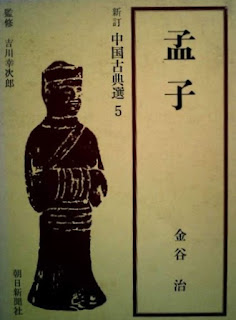バーク『フランス革命の省察』(46)規矩準繩
And first of all, the science of jurisprudence, the pride of the human intellect, which, with all its defects, redundancies, and errors, is the collected reason of ages, combining the principles of original justice with the infinite variety of human concerns, as a heap of old exploded errors, would be no longer studied. Personal selfsufficiency and arrogance (the certain attendants upon all those who have never experienced a wisdom greater than their own) would usurp the
(そしてまず第一に、人知の誇りである法学の科学は、どれほど欠点、過剰、誤謬(ごびゅう)があろうとも、かつて論破された誤謬の山として、本来の正義の原理と無限に多種多様な人間の懸念を組み合わせた、長年の理性の集積であり、もはや研究されなくなるでしょう。個人の自己満足と傲慢さ(自分より優れた英知を経験したことのないすべての人々に確実に付き纏うもの)が、法廷を簒奪(さんだつ)するでしょう)―
cf. 半澤訳、p. 121
Of course
no certain laws, establishing invariable grounds of hope and fear, would keep
the actions of men in a certain course, or direct them to a certain end.
Nothing stable in the modes of holding property or exercising function could
form a solid ground on which any parent could speculate in the education of his
offspring, or in a choice for their future establishment in the world. No
principles would be early worked into the habits.
(勿論、希望と恐怖の不変の根拠を規定する確かな法がなければ、人の行動を一定の軌道に押し留めたり、一定の目的に向かわせたりすることは出来ないでしょう。財産の保有や職務の遂行の様式に何か安定したものがなければ、親が子孫の教育や世間での彼らの将来の地位の選択について思索するための確固たる根拠を形成することも出来ないでしょう。何らかの原理がなければ、早期に習慣化されることもないでしょう)―
cf. 半澤訳、pp. 121f
As soon as
the most able instructor had completed his laborious course of institution, instead
of sending forth his pupil accomplished in a virtuous discipline fitted to
procure him attention and respect in his place in society, he would find
everything altered, and that he had turned out a poor creature to the contempt and
derision of the world, ignorant of the true grounds of estimation.
(最も有能な教師が労を惜しまず教育課程を修了するや否や、社会の中で注目と尊敬を集めるに相応しい高潔な規律を身につけた弟子を送り出すどころか、すべてが様変わりしてしまって、評価の真の根拠を知らない世間から軽蔑と冷笑を受ける哀れな生き物を生み出してしまったということを知るでしょう)―
cf. 半澤訳、p. 122
Who would
insure a tender and delicate sense of honor to beat almost with the first
pulses of the heart, when no man could know what would be the test of honor in
a nation continually varying the standard of its coin? No part of life would
retain its acquisitions. Barbarism with regard to science and literature,
unskilfulness with regard to arts and manufactures, would infallibly succeed to
the want of a steady education and settled principle; and thus the commonwealth
itself would in a few generations crumble away, be disconnected into the dust
and powder of individuality, and at length dispersed to all the winds of
heaven.
(自国の貨幣基準を変え続ける国家において、何が名誉の試金石になるのか誰にも分からないようでは、誰が柔らかで繊細な名誉感を、殆ど心臓の最初の鼓動と共に脈打つと保証するでしょうか。生活のどの部分も、その獲得したものを維持することは出来ないでしょう。科学や文学における野蛮さ、芸術や製造における未熟さが、安定した教育と落ち着いた原則の欠如の後に間違いなく続くでしょう。こうしてコモンウェルスそのものが数世代で崩壊し、個性の粉塵に分解されて、遂には天の風に吹き払われてしまうでしょう)―
cf. 半澤訳、同
基準が失われた社会は、混沌(こんとん)を引き起こす。規矩準繩(きくじゅんじょう)が、社会の安定には不可欠だということである。
《聖人既(すで)に目力(もくりょく)を竭(つく)し、之(これ)に繼(つ)ぐに規矩準繩を以(もっ)てす。以て方員(ほうえん)平直(へいちょく)を爲(つく)る。用ふるに勝たふべからざるなり。既に耳力(じりょく)を竭し、之れに繼ぐに六律(りくりつ)を以てし、五音(ごいん)を正す。用ふるに勝たふべからざるなり。既に心思を竭し、之に繼ぐに人に忍びざるの政(まつりごと)を以てす。而(しか)して仁(じん)天下を覆ふ。故に曰く、高(たかき)を爲さば必ず丘陵に因(よ)る。下(ひく)きを爲さば必ず川澤(せんたく)に因る。政を爲して先王の道に因らざれば、智と謂ふ可けんや》(孟子:離婁上)
(聖人は、既に目の力をもちい竭(つく)してより、これに継ぐに規(ぶんまわし)矩(さしがね)準(みずもり)繩(すみなわ)を以ってして、方(しかく)や員(まる)や平かさや直(なお)さを為(つく)りければ、つくれるもの勝(みな)は用うべからざるなり。既に耳の力をもちい竭してより、これに継ぐに6つの律を以ってして、5つの音を正しければ、ただせるもの勝は用うべからざるなり。既に心思をもちい竭してより、これに継ぐに人に忍びざるの政を以ってしたれば、仁は天下を覆えり。故に『高きを為るには必ず丘陵に因り、下きを為るには必ず川沢に因る。』ともいえり。政を為(な)すには先王の道に因らざれば、智と謂うべけんや)―金谷治『新訂中国古典選 第5巻 孟子』(朝日新聞社)、p. 217

コメント
コメントを投稿